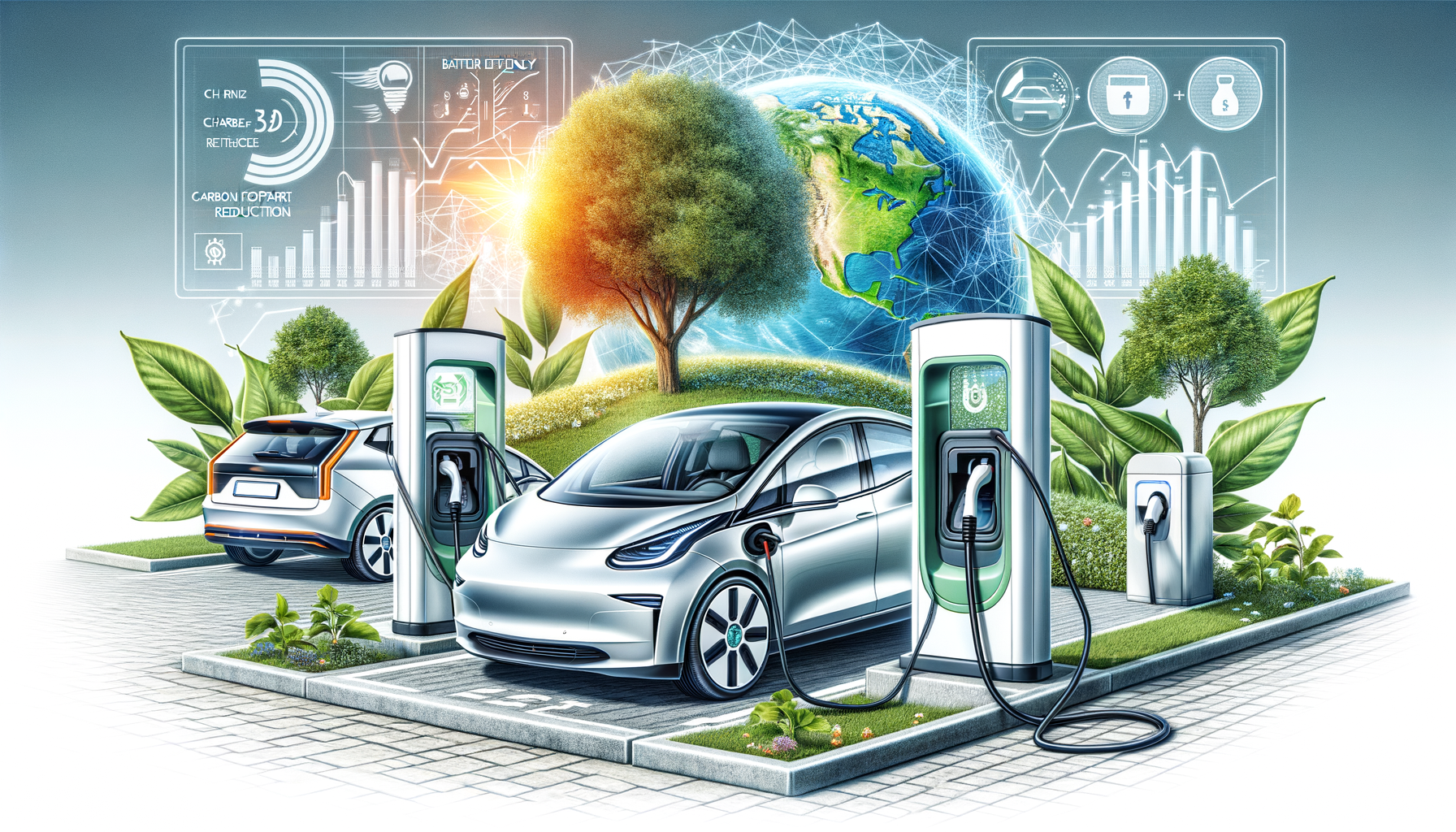advertising
Introduction: Electric Cars vs. Hybrids
Electric cars and hybrids have become increasingly popular choices for environmentally conscious consumers looking to reduce their carbon footprint. While both options offer advantages in terms of fuel efficiency and lower emissions, there are key differences between the two types of vehicles that can influence a driver's decision. In this article, we will compare electric cars and hybrids in terms of cost, environmental impact, range and charging capabilities, performance, maintenance, fuel efficiency, government incentives, resale value, public perception, and technology advancements to help you make an informed decision about which option is right for you.
Cost Comparison: Initial and Long-Term
One of the main considerations for consumers when choosing between an electric car and a hybrid is the cost. Electric cars tend to have a higher upfront cost compared to hybrids due to the expensive battery technology. However, in the long run, electric cars can be more cost-effective as they have lower maintenance and fuel expenses. On the other hand, hybrids generally have a lower initial cost and can be more affordable for consumers looking to save money on their vehicle purchase.
advertising
Environmental Impact: Emissions and Efficiency
In terms of environmental impact, both electric cars and hybrids are more eco-friendly compared to traditional gasoline-powered vehicles. Electric cars produce zero emissions, making them the cleanest option for reducing greenhouse gas emissions. Hybrids, on the other hand, produce lower emissions compared to gasoline-powered vehicles but still rely on fossil fuels for power. Electric cars are generally more energy-efficient than hybrids, as they can convert up to 60% of the energy from the grid to power the vehicle, whereas hybrids have a lower efficiency rate due to the need to switch between the gasoline engine and electric motor.
Range and Charging: Convenience and Limitations
One of the key differences between electric cars and hybrids is the range and charging capabilities. Electric cars have a limited range compared to hybrids, which can be a concern for drivers who need to travel long distances regularly. However, with advancements in battery technology, electric cars are becoming more capable of traveling longer distances on a single charge. Hybrids, on the other hand, have the advantage of being able to refuel at gas stations, providing more convenience for drivers who may not have access to charging stations.
Performance: Speed, Power, and Handling
When it comes to performance, electric cars typically offer better acceleration and torque compared to hybrids. Electric motors provide instant torque, resulting in quicker acceleration and smoother handling. Hybrids, on the other hand, may not offer the same level of power and speed as electric cars, as they rely on both a gasoline engine and an electric motor for propulsion. However, some hybrid models are designed to provide a more engaging driving experience with responsive handling and decent acceleration.
Maintenance: Repairs, Upkeep, and Costs
In terms of maintenance, electric cars have fewer moving parts compared to hybrids, resulting in lower maintenance costs over time. Electric cars do not require oil changes, spark plug replacements, or other traditional maintenance tasks associated with gasoline-powered vehicles. Hybrids, on the other hand, require regular maintenance of both the gasoline engine and electric components, which can result in higher maintenance costs. However, electric cars may require more expensive battery replacements down the line, which can offset the initial savings in maintenance costs.
Fuel Efficiency: Electric vs. Hybrid
When it comes to fuel efficiency, electric cars are the clear winner, as they do not require gasoline to operate. Electric cars can be charged at home or at public charging stations, making them a more convenient and cost-effective option for drivers looking to save money on fuel expenses. Hybrids, on the other hand, offer better fuel efficiency compared to traditional gasoline-powered vehicles but still rely on gasoline for power, which can limit their overall efficiency and environmental benefits.
Government Incentives: Tax Credits and Rebates
Both electric cars and hybrids are eligible for government incentives, such as tax credits and rebates, to help offset the cost of purchasing a more environmentally friendly vehicle. Electric cars typically qualify for larger incentives compared to hybrids, as they produce zero emissions and are seen as a more sustainable option for reducing air pollution. Hybrids may still qualify for tax credits and rebates, depending on their fuel efficiency and emissions ratings, but the incentives may be smaller compared to electric cars.
Resale Value: Electric Cars vs. Hybrids
In terms of resale value, electric cars tend to depreciate faster compared to hybrids due to concerns about battery degradation and range limitations. However, as electric car technology continues to improve and become more mainstream, resale values may stabilize over time. Hybrids, on the other hand, generally hold their value better due to their more established technology and lower maintenance costs. Consumers looking to resell their vehicle in the future may need to consider the potential impact on resale value when choosing between an electric car and a hybrid.
Public Perception and Adoption Rates
Public perception and adoption rates play a significant role in the decision to purchase an electric car or hybrid. Electric cars are often seen as more environmentally friendly and futuristic compared to hybrids, which can influence a consumer's decision based on their values and priorities. However, some consumers may be hesitant to switch to electric vehicles due to concerns about range anxiety, charging infrastructure, and vehicle cost. Hybrids have been more widely adopted in the market, as they offer a familiar driving experience with the added benefit of improved fuel efficiency and lower emissions.
Technology: Advancements and Innovations
Both electric cars and hybrids are benefiting from advancements and innovations in automotive technology, with manufacturers investing in research and development to improve performance, range, and efficiency. Electric cars are seeing rapid advancements in battery technology, allowing for longer ranges, faster charging times, and improved energy efficiency. Hybrids are also evolving to incorporate more advanced powertrain systems, regenerative braking, and other technologies to enhance fuel efficiency and reduce emissions. Consumers can expect to see continued advancements in both electric cars and hybrids as the automotive industry moves towards a more sustainable and environmentally friendly future.
Conclusion: Choosing the Right Option for You
In conclusion, when comparing electric cars and hybrids, there are several factors to consider, including cost, environmental impact, range and charging capabilities, performance, maintenance, fuel efficiency, government incentives, resale value, public perception, and technology advancements. Electric cars offer zero emissions and lower long-term costs but may have limitations in terms of range and charging infrastructure. Hybrids provide a familiar driving experience with improved fuel efficiency but may not offer the same environmental benefits as electric cars. Ultimately, the decision to choose an electric car or hybrid will depend on your individual needs, preferences, and priorities as a consumer. By weighing the pros and cons of each option, you can make an informed decision about which type of vehicle is the right choice for you.


